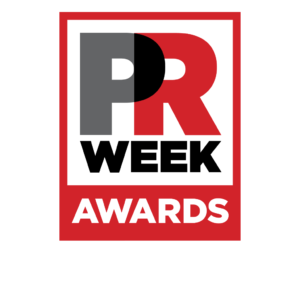 Richard W. Edelman, the president, chief executive officer and namesake of Edelman Public, is a very happy man.
Richard W. Edelman, the president, chief executive officer and namesake of Edelman Public, is a very happy man.
“In a world where we don’t have a belief in a single source, you don’t have a Walter Cronkite anymore. PR is the discipline on the rise,” Edelman told attendees last week at PR Week’s annual awards dinner, according to The New York Observer.
“PR,” Edelman continued, “plays much better in a world that lacks trust.”
Edelman later had harsh words for the newspaper industry, which has fallen on hard times due to a number of factors, not the least being the rise of the Internet.
“It used to be I would schmooze you and I was your flack,” said Edelman. “Today, if we want to get a message into the public’s conversation, we just make a post on a blog. If The Wall Street Journal goes after a client, we don’t have to accept that anymore. Let’s post the documents we gave The Journal; let’s show the interviews the newspaper decided not to show. You’re not God anymore.”
Wall Street Journal reporters, and other journalists, are no doubt taking note of Edelman’s remarks. As evidence, I found the New York Observer story via a link on Romenesko, a weblog read mainly by journalists.
Edelman was not the only PR executive to take a shot at the media at the awards ceremony.
“The role of public relations people is to act as the gatekeepers for news and information,” said Andy Plesser, founder of Plesser Holland Associates. “Many journalists want to believe they are being enterprising on their own.”
I personally got a chuckle out of both men’s comments, mostly because their firms pitched me endlessly when I was a journalist, and only in one case that I can remember did I take a pitch. (It was from Plesser, and it was about a study conducted by Wired Magazine.) This is not to say that Edelman and Plesser don’t have valid points. However, I think the two are exhibiting a bit of irrational hubris.
Edelman’s remarks on trust are interesting – or ironic – considering the average person’s view of PR people lumps them near the bottom of the trust totem pole. I find it hard to believe that Joe Consumer believes PR people anymore than they believe The New York Times or Fox News Channel, because Joe Consumer is not stupid. Joe Consumer will believe the media outlets that most align with his views, and if he’s really concerned about an issue, he’s going to align with his political party, union or some other identifying (race, religious, sexuality, age, geographic, economic, etc.) group.
Edelman’s comments are not surprising considering a study his firm conducted late last year.
According to the seventh annual Edelman Trust Barometer (conducted in October 2005 and released in January 2006), television is the most trustworthy media source in the U.S., with 29 percent of opinion-makers polled saying so. Fewer opinion-makers – 19 percent, but up from 10 percent three years ago – trust the Internet. Trust in newspapers was constant at about 20 percent, though with higher rankings in countries such as France, Germany, Japan and Brazil. Business magazines rank as the most trustworthy media source, while friends and family are the most trustworthy sources anywhere. One wonders, of course, where friends and family get their information.
Edelman’s study is somewhat telling, as the company’s top cheese pointed out in a January press release.
“We have reached an important juncture, where the lack of trust in established institutions and figures of authority has motivated people to trust their peers as the best sources of information about a company,” said Richard Edelman. “Companies need to move away from sole reliance on top-down messages delivered to elites toward fostering peer-to-peer dialogue among consumers and employees, activating a company’s most credible advocates.”
Reading that quote, it’s no surprise that Edelman is a big promoter of blogs, and a blogger himself. But bloggers mostly rely on three sources for information: the media, PR people and other bloggers. (Yes, I know that some bloggers do their own reporting, but certainly not enough.) It’s worth pointing out that without the former two, the latter wouldn’t have much to write about, and the media still supplies the vast majority of information that bloggers utilize, much more than PR people do.
Plesser, meanwhile, may want to be careful about biting the hands that feed him. According to his firm’s website, Plesser’s clients include CNET Networks, Conde Nast Publications, eWeek, PC Magazine, Red Herring, Salon.com, The Deal, Wired and a company called The NewsMarket, which describes itself as a “pioneering broadcast news distribution service that brings newsmakers and journalists together.
Plesser’s comment, which was “respectfully” rebutted by CNBC’s Michelle Caruso-Cabrera, should not be ignored. Journalists should take note that a PR executive, specifically someone who relies on media clients, looks down on their craft. Why a PR person would say this, and to a journalist, is beyond me. Perhaps Plesser should institute a policy that involves not pitching or dealing with journalists. Likewise, maybe he should suggest to the publications that he reps that they only deal with PR people and do no reporting of their own! How great would reading a magazine like that be?
The Edelmans and the Plessers of the world are correct. The public doesn’t trust the media, and there are new ways to circumvent the media to get a message out. However, as “citizen journalism” evolves, I think it’s reasonable to assume that the same battle lines that exist between PR people and the mainstream media will come into play between PR people and bloggers. As Edelman knows, there are pro-Wal-Mart and anti-Wal-Mart bloggers (the company is a client of his), and for every Wal-Mart employee or fan who goes online to blog about the greatness of the company, there is going to be someone blogging about why they think the company is terrible.
Traditionally, the media has played the role of the third party in that fight, reporting both sides of the story and letting Joe Consumer decide for himself what he wants to believe. If we take the media out of the equation, all we’re left with is a bunch of shills and critics.
If that’s the world that PR executives want to operate in, good luck.
As a Joe Consumer and a PR person, I can tell you that the last thing I want is a world where the media is marginalized by PR people, cranks and shills. Instead, I’d rather see a healthy media, a flourishing blogosphere, and a growing PR industry that understands Joe Consumer needs more than just a press release or blog-post written by a PR person to get his daily news fix.
This article, written by Ben Silverman, originally appeared in PR Fuel (https://www.ereleases.com/prfuel), a free weekly newsletter from eReleases (https://www.ereleases.com), the online leader in affordable press release distribution. To subscribe to PR Fuel, visit: https://www.ereleases.com/prfuel/subscribe/.
